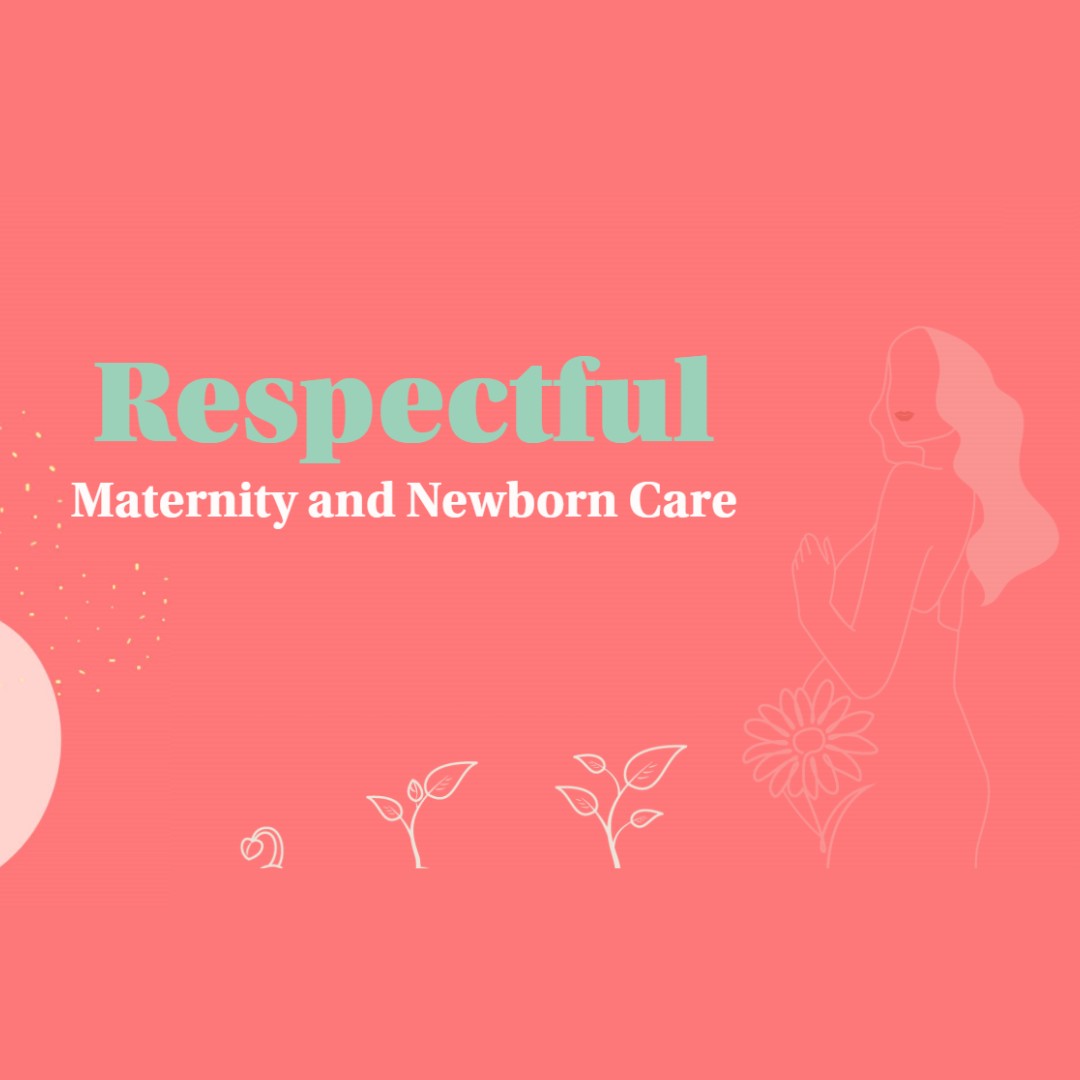
Background
In the Americas, significant progress has been attained in maternity and newborn care since the end of the 20th century evidenced by a downward tendency in pregnancy and delivery mortality rates. However, this progress has been slow and uneven, and, although improvements have been achieved in terms of access, the Americas display an important lag in terms of the quality of maternity and newborn care.
The WHO maternity and newborn health care quality framework considers dignified and respectful care as one of the essential components to improve perinatal health results (OMS, 2016; Tuncalp et al., 2015). Respectful maternity and newborn care is an approach which focuses on the individual and human rights. It frames aspects related to ethics, rights and interpersonal relationships, including the respect for women and newborn fundamental human rights, such as autonomy, dignity, decision-making and preferences.
The WHO/PAHO promote the concept of pregnancy and childbirth as positive experiences, updating clinical guidelines for prenatal care and childbirth management and proposing, based on the available evidence, a holistic health care model focused on women and based on universal human rights, which promotes dignified and respectful maternity and newborn care as an essential element of health care quality (OMS & OPS, 2018, 2019).
Improving health care quality based on the best available evidence is a never-ending endeavor. Within this quality framework, at a global level, the importance and promotion of the adoption of perinatal health care models focused on women and their babies is acknowledged. Effective communication and emotional support are essential elements of quality maternity and newborn care (OMS, 2016).
Purpose of the course
Raising the awareness and strengthening the capacity of the interested parties regarding concepts and practices related to respectful maternity and newborn care; identifying the legal frameworks which support it; recognizing and describing the use of some of these tools to plan, implement and monitor quality improvement initiatives for maternity and newborn care in health care services.
Objectives of the course
Upon completing this course, attendees will be able to:
- Define respectful maternity and newborn care and why it is important
- Identify the international, national and institutional regulatory frameworks that support respectful maternity and newborn care
- Develop skills to use tools to implement and monitor respectful maternity and newborn care quality improvement and promotion initiatives in health care services
Course format
This is a self-paced training so participants can take each module at their own pace, deciding when and for how long will they explore the modules. There is no deadline to complete this course.
Class Load and Workload
The course is open and available through CVSP. Since this is a self-study course, participants are able to regulate their time and workload. The estimated time for the completion of all modules and the final assessment is 25 hours.
Intended audience
Individuals interested in the promotion of respectful quality maternity and newborn care, including health care professionals, professional midwives, managers, government representatives and civil society members.
Course structure
Module 1 - Conceptual aspects and overview of respectful maternity and newborn care
- Session 1: What is respectful and maternity care? WHO quality framework and respectful maternity and newborn care
- Session 2: The importance and current situation of respectful maternity and newborn care: the prevalence and impact of abuse and disrespect
- Session 3: Brief history of respectful maternity and newborn care; respectful maternity and newborn care within the framework of global and regional rights: the Respectful Maternity Care Charter: The Universal Rights of Women and Newborns (Alianza del Listón Blanco, 2019). Respectful maternity and newborn care within national regulatory frameworks. Case study: Right to intercultural health under the Constitution of Bolivia.
Module 2 - How to implement quality improvement actions and promote respectful maternity and newborn care?
- Session 1: Strategies to improve respectful maternity and newborn care. International Childbirth Initiative: The 12 steps to a safe and respectful health care for mothers, newborns and families (FIGO et al.).
- Session 2: Design of a humanized and intercultural delivery room
- Session 3: Respectful practices based on evidence and unrecommended practices
- Session 4: Informed consent and effective communication
- Session 5: Tools to assess the implementation of respectful maternity and newborn care within the care quality framework
Module 3 - How to monitor the quality of health care and respectful maternity care?
- Session 1: Respectful maternity and newborn care indicators (based on the WHO QoC network)
